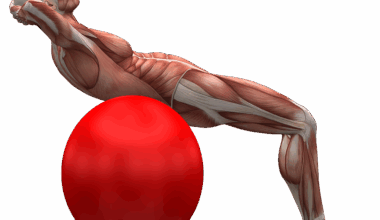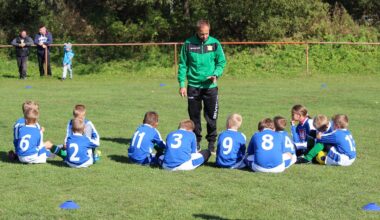Mental Fitness Assessment Tools for Tennis Players
Mental fitness is an essential component for success in tennis, influencing performance, focus, and overall mental health. Assessing mental fitness helps players identify their strengths and areas for improvement. Tools for mental fitness assessment vary widely and can include self-reflection questionnaires, visualization exercises, and goal-setting frameworks. Regularly assessing one’s mental fitness can facilitate personal growth and resilience, key attributes for competitive play. Players can leverage various structured assessments to benchmark their mental readiness before matches. Important benefits include enhanced self-awareness and increased motivation. Coaches can also play a role in this assessment process, offering insights into player behaviors and mental states. Collaborative assessments can provide a more holistic view of a player’s mental health. Incorporating mental fitness assessments into routine training ensures athletes prioritize psychological preparation. Additionally, taking the time to reflect on performance and emotional reactions can foster a learning mindset, crucial in a demanding sport like tennis. Gathering feedback from team members can further enrich this process. Utilize these tools to elevate your game and cultivate a champion’s mindset.
Mental fitness assessments can take many forms, each serving unique purposes and objectives. One popular method is the use of self-report questionnaires, which allow players to evaluate their mental readiness and identify specific challenges. These questionnaires might address aspects such as anxiety levels, focus skills, and resilience in various situations. Another effective approach is performance simulation under pressure. Players can engage in practicing scenarios that replicate high-stakes match situations to gauge their reactions. This can include simulated match play or time-bound drills. Additionally, journaling can be a profoundly reflective practice, helping players document their thoughts and feelings. Journaling not only improves self-awareness but also connects players with their inner motivations. In contrast, informal assessments may focus on discussions during training sessions, where players can express their mental barriers in an informal setting. This can facilitate peer support while providing insights into potential solutions. Select tools that resonate most with your personal journey and align with your training goals. Incorporate these tools regularly, and adapt as needed. Mental fitness is an ongoing process; evolving your assessment methods ensures continual growth.
Integrating Mental Fitness Tools into Training
Integrating mental fitness tools into training routines is crucial for sustained development. A well-rounded approach will include regular use of assessment tools and real-time mental practice. Coaches can incorporate mental fitness assessments into skill sessions, allowing for immediate feedback and adjustment. For instance, after a set practice session, players can evaluate their focus and emotional responses to specific drills, identifying areas needing attention. Visualization techniques can be practiced during cool-downs or warm-ups, helping players mentally rehearse winning strategies. Breathing exercises can also be vital, serving as both an assessment and improvement tool, helping players recognize when they are becoming tense or distracted. Peer assessment is another strategy, encouraging players to provide constructive feedback on one another’s mental performance. This not only strengthens team relationships but also enhances everyone’s mental skills. Using a combination of these tools consistently fosters a culture of mental strength within the team. Lastly, make it a point to re-evaluate and revise mental fitness goals regularly, ensuring they align with competitive timelines. Adaptability in both mental assessments and trainings promotes resilience and peak performance.
Measuring the effectiveness of mental fitness tools requires continual reflection and adjustment. One way to assess the tools is to track performance metrics during matches or competitions. Analyzing statistics, like the number of unforced errors or successful execute shots, can provide insights into mental readiness. Additionally, players should check in with their emotional state before and after matches. Recording feelings and reflections in a journal can offer clarity surrounding performance patterns. Seeking feedback from coaches and peers can further enhance understanding, providing external perspectives on a player’s mental fitness. Participating in team discussions to dissect mental challenges faced during competition can shed light on commonly experienced anxieties. These discussions can help uncover collective mental strategies that may benefit everyone involved. Consider establishing performance review milestones to ensure progress is measurable. By reflecting on what did or did not work during specific training or match experiences, athletes can fine-tune their approach. Mental fitness, just like physical practice, is an evolving field. Commitment to continual monitoring allows tennis players to adapt techniques that best suit their psychological needs.
Common Mental Fitness Techniques
There are several common mental fitness techniques that players adopt to enhance their cognitive resilience on the court. Visualization is perhaps one of the most widely practiced techniques, where players mentally picture themselves executing successful shots, serving aces, or winning tight matches. This mental rehearsal can build confidence and familiarity, aiding performance under pressure. Another technique is goal setting, wherein athletes establish clear, attainable goals for both practice and competitive settings. This can clarify focus and direction in training routines. Mindfulness and meditation practices offer additional mental strategies, allowing players to cultivate presence and awareness during both practice and competition. These techniques help in managing anxiety and staying focused during critical match moments. Positive self-talk also plays a vital role; players can combat negative thoughts by replacing them with affirmative statements. This can drastically improve motivation and outlook during matches. Additionally, developing a pre-performance routine can create consistency in mental readiness. Embrace these techniques to create a tailored mental toolkit that supports performance and wellbeing as a tennis player.
Employing mental fitness tools in alignment with physical training enhances overall athlete performance. Athletes should ensure that their mental practices are complementary to their physical training routines. For example, after intense physical conditioning, incorporating relaxation techniques can facilitate recovery while reinforcing the mental components of the training session. It’s essential to understand that mental fitness should be seen as a continuous process that can change based on an athlete’s experiences and needs. Comfort with the tools ensures players can naturally integrate them into practice and competition. Networking with sports psychologists can further expand players’ mental fitness toolkit by exposing them to professional resources and strategies. Regular workshops or training sessions focusing on mental fitness can reinforce learning and introduce new skills. Involving team members in these learning opportunities fosters a sense of collective growth and support. This approach not only enhances individual performance but also builds a stronger team culture overall. Additionally, consistency is vital; establishing a routine that naturally incorporates mental fitness tools leads to habit formation and sustained growth. This holistic approach to training paves the way for a balanced, successful tennis career.
Conclusion
In conclusion, understanding and utilizing mental fitness assessment tools are paramount in developing as a tennis player. Each assessment offers unique insights helping players to enhance their performance and mental resilience. From self-reported questionnaires to visualization practices and peer feedback, these tools empower athletes to unlock their potential. As mental fitness is integral to overall tennis athletics, prioritizing it throughout the training cycle is essential. Players who commit to regularly assessing and refining their mental resilience not only build confidence but also improve performance under pressure. Encourage teammates to engage in this process collectively, cultivating an environment where mental fitness is prioritized alongside physical training. Engage sports professionals as needed to augment your toolkit further while continuously exploring and adapting strategies that best suit your needs. Remember that mental fitness is an ongoing journey. It deserves as much attention as physical training, as it can drastically influence match outcomes. Start integrating these tools today for not only success in tennis but overall growth as an athlete and individual.
Cultivating mental fitness in tennis is a journey that encompasses various strategies, techniques, and assessments that players can utilize to enhance their game. Implementing these strategies successfully requires practice, dedication, and a willingness to learn from both successes and setbacks. Over time, players can develop resilience, focus, and mental agility, setting themselves apart in competitive situations. To maintain balance among the demands of physical training, mental assessments should be a staple in regular training. As this journey unfolds, it becomes increasingly important to evaluate the tools and techniques being used, ensuring they align with personal growth and competitive goals. Mental fitness should be integrated seamlessly into training routines, not treated as an afterthought. Building a supportive environment within a team can foster the growth of individual mindsets while contributing to shared success stories. Understanding that mental fitness is a skill that can always be improved upon encourages players to remain engaged and proactive in their mental training. Accepting challenges as part of the process will lead to deeper insights and greater achievements. Ultimately, the journey toward mental fitness in tennis enhances the overall sporting experience.


